by Jenny Rose | Feb 11, 2023 | Connection & Community, Parenting
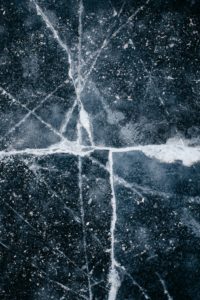
Photo by Tom Barrett on Unsplash
February. A couple of days with -40 degrees wind chill here in Maine that felt apocalyptic. A dead car battery. At work, a broken pump in one of the pools, private swim lessons, ill team members, and an upcoming lifeguard recertification training this weekend, which I’m sure I’ll pass. Probably. A $250 “unscheduled delivery charge” on a $500 + propane bill, as though the brutal cold was somehow our fault. A possible estate tag sale on the contents of my mother’s untenanted house in Colorado, as she now lives in memory care.
The sound of the cardinal at the birdfeeder. The cats basking on my desk in the morning sun. Blueberry lavender tea. The scent of a lavender candle. Imbolc, when the wild maiden returns. The Ice Moon, or, if you prefer, the Storm Moon. Daylight arrives earlier and lingers later.
Through it all, I think about The Mother. The Mother the wild Imbolc maiden might become. The Mother who nurtures, creates, carries the possibility of new life and beginnings within us. I think of biological mothers who labor and deliver a new baby into the world. I think of foster mothers, substitute mothers, women who grieve for their empty wombs. New mothers. Struggling mothers. Mothers whose children have grown and gone, or just … gone.
Sisters and aunts and grandmothers. The long line of mothers who stand behind our own mothers.
Myself as Mother.
I wrote down a quote recently. Unfortunately, I didn’t write down the source of the quote! I always think I’ll remember and then I don’t. Never mind. If it’s yours, let me know and I’ll give you full credit!
“A mother without fear of her own potential.”
There are so many ways to unpack this. A creator, an archetypal mother without fear of her own potential. Is there any artist or maker alive who doesn’t struggle with his or her fear of failure and success?
A young woman, simmering with hormones, discovering the power and potential of her sexuality in the context of rape culture and patriarchy; risking unplanned pregnancy, sexually transmitted diseases, violence, heartbreak, health, and even life.
A woman who longs to be Mother but cannot conceive, or carry, or deliver a living child. The yearning. The agony. The grieving and despair at being unable to fulfill such an overwhelming biological imperative. A woman who feels herself a vessel of death rather than a vessel of life.
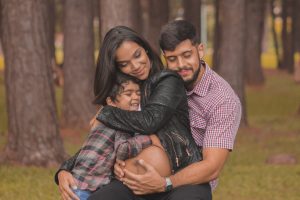
Photo by Laercio Cavalcanti on Unsplash
A mother, the sweat of labor still on her face, swept with a ferocious love for the infant she’s just birthed, a love terrifying, passionate, transforming the landscape of her life irrevocably and forever.
A mother, lined, weary, anguished over her child’s unhappiness, ill health, addiction, behavior, wounds, choices, death. The passion of her pain equals the passion of her love. The passion of her rage and fear equal the passion of her love. How can this child we carried and cherished and loved so deeply, this child we would have defended with our teeth, our fingernails, our life, make self-destructive choices? How can they refuse to love themselves? How could we have failed to protect their health and happiness?
The ability to love like a firestorm, like a hurricane, like an earthquake, most would agree, is exciting and wild, a beautiful force of nature, perhaps the most powerful feeling in the world. But never forget passion cuts both ways. If we release and allow the potential of our love, we have opened ourselves equally to grief, loss, rage, unendurable pain.
I am a mother. I fear that potential.
Not that I had a choice. The feel of my newborn sons in my arms overcame me as powerfully as labor did. I was helpless before it. Their wellbeing and existence twined inextricably with mine in an instant. I made no conscious choice and had no conscious control enabling me to stand back from my potential as Mother.
I was Mother. They made me into Mother. I can never go back.

Photo by Liane Metzler on Unsplash
Yes, I know, boundaries are important. Individuation is important, as are freedom, letting go, and a hundred other facets of emotional intelligence I’ve written about on this blog. But I’m not talking about the long road of motherhood here, where we learn and stumble, fall down to rest, weep, get up, learn and stumble again. I’m talking about the timeless primal bond, deeper than language, deeper than reason. The wild love that works through us. Divinity, perhaps. Some would say The Devil. Whatever it is, it’s bigger than us. Bigger than me, anyway.
Do we imagine our own mothers feeling about us as we do about our children? Can we imagine it?
I can’t. If my mother felt for me what I feel for my sons, the tempest of her passion was never expressed in a way I understood it. Not in words, not in touch, not in action. Now, as she drifts in her dementia, I wonder, though, if she did feel as I did, but some great wound or constriction in her heart, now loosened because she does not remember it, did not allow her to express it. Perhaps her fear of her own potential as Mother was too great to allow her to demonstrate the depth of her love.
If so, I can understand. I can forgive.
Can I forgive myself as Mother? Can I forgive the things I didn’t say and should have, the things I did say and shouldn’t have, the unintended hurts and consequences as I made choices and lived my life? Can I forgive my inability to keep them safe every minute of their childhoods? Can I forgive my ignorance, my lack of understanding regarding their needs and challenges?
I used to tell a story about an orphaned boy who was “so lonely and so hungry nobody wanted to be with him.” That phrasing always made me fight tears when I spoke it. More than my many imperfections as Mother, can I forgive the way I tried to abandon the Mother part of myself? As my sons grew into manhood and began to live their own lives and I saw their challenges and pain, the Mother in me was too lonely and too hungry. Too filled with pain and rage, grief and shame. I turned away from her for a time, walked on without her, left her alone in the wilderness to live or die, as long as I didn’t have to experience her hunger, her loneliness, her feelings.
With my first child, I claimed the potential for Mother within myself. I flung myself into it, holding nothing back, having no thought of caution or reserve. And then, years later, I rejected it, abandoned joy and love because I could no longer face the pain. I severed myself from my own mother. I severed myself from my experience of Mother. I sundered myself and lived for a time with a cleaved heart.
But my love is a blind thing, a feeling without reason or logic. No matter the distance between my mother and myself, my sons and myself, my love did not diminish. Nor did the suffering that goes with it. The internal Mother I evicted grieved and wept. She lit candles and raged and feared and prayed for peace, for all to be well. She scratched at the windows of my life, whispered dreams beside my pillow, followed me like an abandoned spirit. She is mine and I am hers, though I tried to cast her away.
I know I will never be whole without her. The child within me, the crone I am growing into – both need the Mother. I need her as I care for animals and people, as I nurture new life in the garden, as I teach children to swim, as I write, as I cherish my friends and family. As I cherish myself.
Perhaps I simply needed a break from the pain. Perhaps I could not learn to love myself while being battered by the needs and demands of my mother and my sons. Now, my ability to care for and nurture myself gives me a place to pause, to rest. Perhaps, as I age, I am growing in wisdom, losing not the depth of my love, but the frantic edge that cuts so keenly. Love, after all, endures. Motherhood endures. I am the sum of my parts plus a little more. I cannot decide to be less. I might as well accept all of myself, reclaim all of myself, be all of myself. 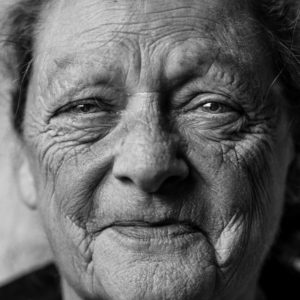
And so, I’ve returned, Mom. We were not a perfect mother and daughter, you and I. We each did our best, and now my best is better than that. Let there be peace between us now, at the end. I have never stopped loving you. And Mother of my sons, cease following me just out of sight. Come in. Let us soothe one another’s weary regrets and scars. We loved with everything we had. Those we gave life to were never ours to keep. They must walk their own paths. Let us find a way to release our love from our pain.
Let us reclaim one another.
Questions:
- What was your experience of being mothered?
- What has been your experience of being a mother in the wide sense, as a creator, a biological mother, or a substitute, surrogate, or foster mother?
- What potential in yourself do you fear?
- Who in your life has been so hungry and so lonely nobody wanted to be with them? Have you ever felt like that person?
Leave a comment below!
To read my fiction, serially published free every week, go here: 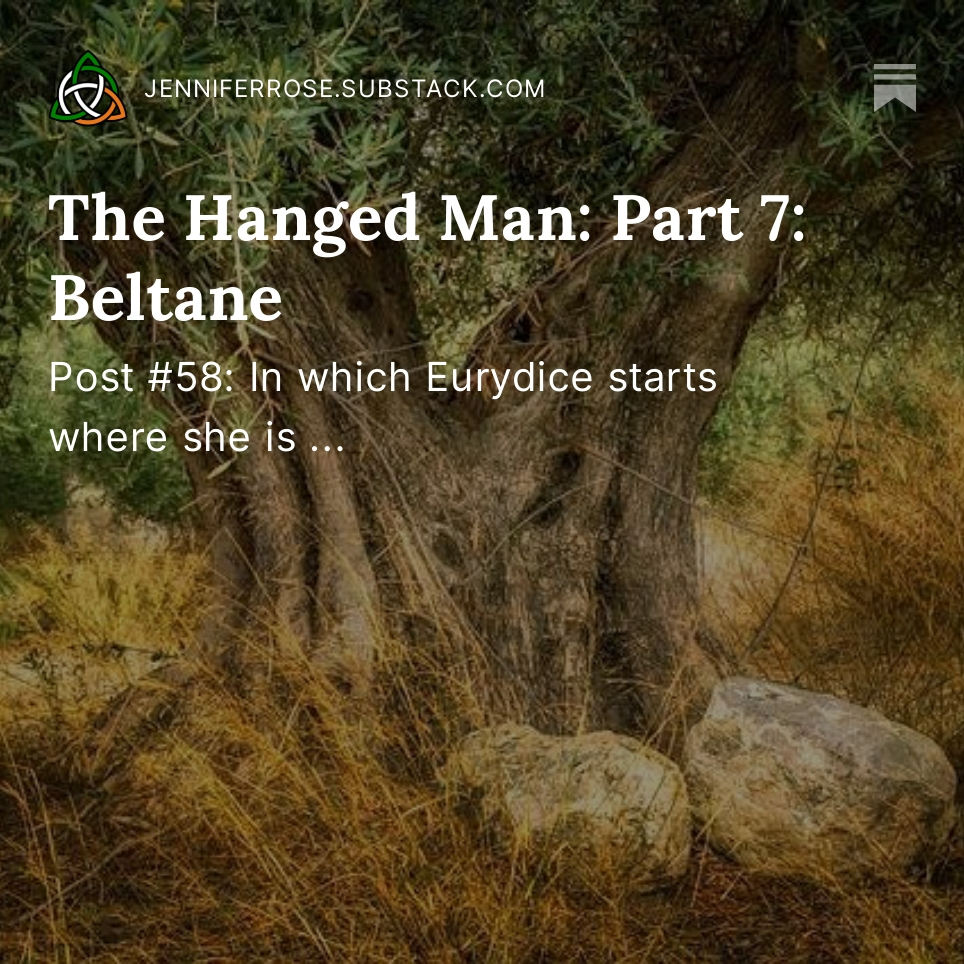
by Jenny Rose | Jan 28, 2023 | Emotional Intelligence, Feelings
As I write this, I have just returned from a long journey across the country and into my past. I’m home again, but the journey is not over and I expect to retrace my steps back and forth for some undetermined length of time.
The physical journey, however long, is nothing to the internal journey I’ve undertaken through my memories, family dynamics and history, and so much of what has shaped my life and experience.
Before I left, I came across this poem by David Whyte:
Here in the Mountains
There is one memory deep inside you.
In the dark country of your life
it is a small fire burning forever.
Even after all these years
of neglect
the embers of what you have
known rest contented
in their own warmth.
Here in the mountains,
tell me all the things
you have not loved.
Their shadows will tell you
they have not gone,
they became this night
from which you drew away in fear.
Though at the trail’s end,
your heart stammers
with grief and regret,
in this
final night
you will lean down at last
and breathe again on the
small campfire of your
only becoming.
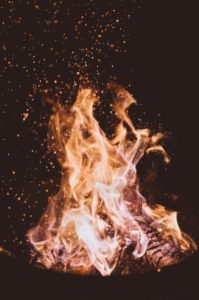
Photo by Joshua Newton on Unsplash
“Tell me all the things you have not loved.” This is an invitation I’ve never heard before. My focus has been on gratitude, on reframing, and on finding something good in every situation. I call myself a pessimist rather than an optimist, though I do leave windows and doors open for good things to happen while preparing for the worst.
My friends and I talk at work about the way we avoid “complaining.” A male coworker was taught as a child to refuse to give way to pain and illness, to work through it silently and privately without “complaint.” Is complaint the same as acknowledgment? I’m not sure. Three of us, all women, are more comfortable acknowledging our struggles and distress than our male friend, but none of us want to hear ourselves “whining.” Is whining the same as acknowledgment? I’m not sure about that one, either.
Because of my own confusion and blurriness around the terms we use and the cultural pressure towards toxic positivity, speaking about the things we have not loved is a jarring proposal. I carried it as I traveled on cars and buses, airport shuttles and airplanes. I hardly wrote at all over the last week. One journal entry by hand on the plane and the rest of my notebook filled with to-do lists, notes, names and numbers.
But I thought about things I have not loved.
It’s not just the invitation, though. It’s the way Whyte suggests all the things we have not loved are the background against which our lives are pinned, the shadows defining the light. I think of the night sky, gleaming with stars. What would the stars be without the blackness around them? I think of candle flames, fireflies, a lone campfire in the wilderness in the black night.
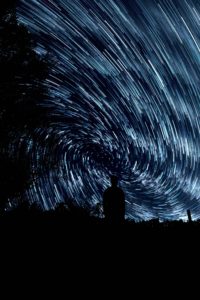
Photo by Jeremy Thomas on Unsplash
And isn’t it true that the things we have not loved don’t go away? Don’t they stay with us more inexorably, in fact, than the things we have loved? It seems so to me. Thus the fear, the drawing away, the heart filled with grief and regret. But at the core of our lives perhaps there is a small fire, patiently burning, waiting for us to come to our trail’s end. I think some would call the small fire God.
I realize one of the largest things I have not loved is love. A strange thing to realize, and a strange thing to say, I know. But so often my love has been helpless. The strong bonds, history, and feeling (all of which I mean by “love”) I feel for my parents, my brother, and my sons have been the greatest sources of pain in my life. Five vast, dark, wildernesses surrounding five campfires, these five who are flesh of my flesh, blood of my blood. These five who I could never stop loving, even if I wanted to. No matter how great the shadows around the fires, the flames burn, warm, beautiful, cleansing, regenerative. Often, I wish I could stand just outside the firelight, unseen, and simply love without fear, without pain, without wishing to be loved in return. But I do draw away in fear from the heat, the flame, the passion of the fire. I cherish the fires and would protect them with my life, but I fear them, too.
I have not loved the trauma and abuse that has shadowed what I love. I have not loved my disillusionment or the terrible choices I’ve made in building boundaries and learning to love myself. I have not loved my feelings of loss, insecurity, scarcity, and exile. I have not loved my pain and grief. I have not loved learning to let go.
I did not love walking into my mother’s home, the place where she has lived her self-imposed solitary journey into dementia and inability to care for herself. I did not want to follow her trail into the darkness of fear and denial, marked with soiled clothing and bedding, desperate and increasingly nonsensical and illegible notes and reminders. I did not want to go through drawers and cupboards of vitamins and supplements; over-the-counter remedies for pain, sleep, memory loss, skin problems and digestion issues. I did not want to fill trash bags with worn-out but never discarded clothing and shoes, a thousand used emery boards, outdated products and food.
I did not love going through every stitch of her clothing, sorting, washing, labeling with a laundry marker and packing it all to take to her new home in a memory care unit. The day after I carefully loaded her dresser, newly cleaned and placed in her room, we visited and found she had dumped every drawer into her laundry basket. She was “packing” to go home.
I did not love doing any of it. I did not want to do it. It broke my heart and filled me with futile guilt and shame. But at the center of every bag of trash, every bag and box to be donated, every clean drawer and cupboard, burned the small fire of my love for my mother. Inescapable. Inexorable. In a strange way, all the things I did not love were fuel to keep that fire burning. The more shadows I found under beds, in closet corners, in drawers and cupboards she forgot she had, the brighter the fire burned. My pain and pity, my anger with her lifelong pattern of denial and rejection of any help or support, made the fire burn higher. To tend the fire is to face the darkness.
And I would not have the fire go out, though I feel torn into pieces by its presence.
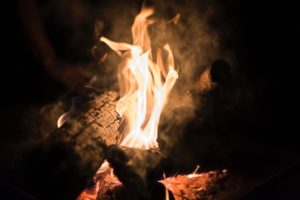
Photo by Josh Howard on Unsplash
It’s been a dark week, a week of deliberately moving into the things I have not loved. Drawing back was not an option. I could only step into the void. But the darkness has held a thousand small flames. The faces of old friends, both mine and Mom’s. Her animals, once so beloved but now forgotten by her, rehomed and doing well. A hundred acts of kindness and generosity. Help with moving furnishings into her new room. A cherry pie. Hugs and tears. The good-hearted friendliness of dogs. Constant support. Texts, emails, phone calls – all messages of succor and sympathy for me and my brother, for Mom. The friend who cares for the plants. The friends who keep an eye on the house. The friend who took a load to Goodwill for me. The friend who will take out the mountain of trash in the garage. And, when I came home, the arms of the friends who welcomed me back.
The shadows and the light. The things I have not loved cradle the things I do love. I am so weary I cannot begin to unravel the paradox. Perhaps it cannot be unraveled, only accepted and experienced. Perhaps Mom is wandering in her own dark wilderness, seeking the small campfire of her becoming, and when she finds it, leans down to breathe upon it, she will at last know peace.
Questions:
- Share three things you have not loved.
- Do things you have not loved persist in your life? What creates a background for what you do love?
- What is the difference between complaining (whining) and acknowledgment? Do you believe it’s wrong for you to admit to personal struggles?
To read my fiction, serially published free every week, go here: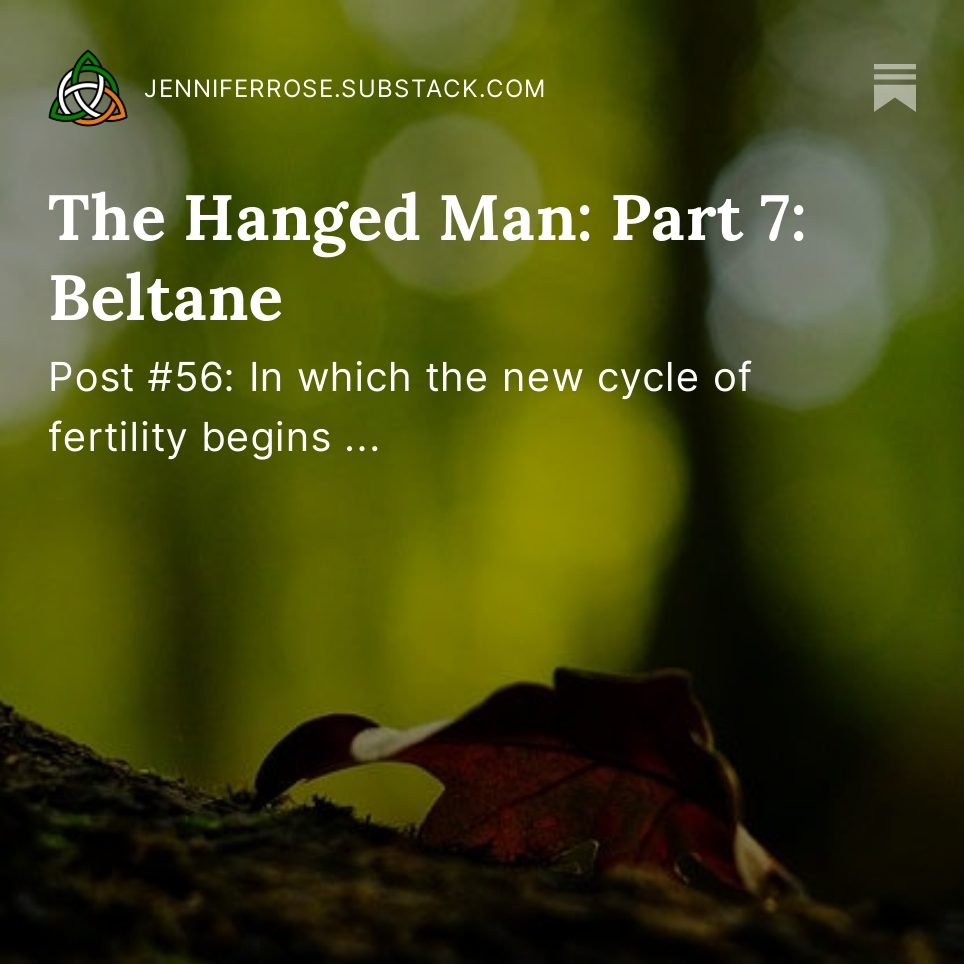
by Jenny Rose | Dec 3, 2022 | Aging, Connection & Community, Emotional Intelligence
I once saw the movie 50 First Dates, about a young woman who had no memory. Every day she woke up as a clean slate with no past.
The movie gave me the heebie-jeebies. I’ll never watch it again. In several close relationships, both family and romantic, I’ve experienced the devastating grenade of “I forgot,” or “I don’t remember that.”

Photo by John Salvino on Unsplash
In chronically abusive and dysfunctional family systems, “I don’t remember that” effectively shuts down any way forward into mutual responsibility, understanding or healing. Our traumatic memories suddenly waver. Did we, after all, make it all up? Did we misunderstand for years and decades? Are we unforgiving, mean and petty of spirit, hateful? Most frightening of all, are we crazy? If we’ve been chronically gaslit, we certainly feel crazy.
In “romantic” relationships, this memory failure is equally damaging. It blocks conflict resolution and discussion. If it’s true, it means the forgetful partner is unable to learn and adapt to the needs of the relationship and the other partner. There can be no learning and growing together. Nothing can change.
Most of all, this kind of response feels to me like an abdication, code for “it’s not my fault and I refuse to take responsibility.” It’s a signal I’m on my own with my questions and my need to understand.
It’s like a door slammed in my face, and I don’t beat on doors slammed in my face, begging for entry. I walk away.
Now I have a relative with dementia, and it’s extraordinary. I have never felt able to get close to this person before, though I have loved them deeply all my life. I’ve also never felt I was anything but a disappointment and a burden to them. I couldn’t find a way to get past their lifetime of accumulated trauma and pain, bitterness and rewritten narratives. As a truth seeker, I’ve been continually stymied and suspicious, believing I could not trust them to ever tell me the plain truth about anything.
Most painful of all, the fullness of my love has been rejected, over and over, for decades. Nothing I am or have to give was welcome; most of it was distinctly unwelcome.
Now I am witnessing a kind of metamorphosis. Gradually, gently, like leaves falling from trees in autumn, my loved one is letting go of their memories. And in some elemental way, as I walk beside them (because I have always been beside them), I am releasing the pain of my memories.
My loved one has experienced periods of extreme agitation and distress, and those are terrible for everyone. But, as the days pass, those periods seem to have passed too, and now I’m witnessing a gentle vagueness, a dream-like drifting, and in some entirely unexpected and inexplicable way I feel I’m at last catching a glimpse of the real person I’ve always wanted to know.
Even more amazing, I can now say “I love you very much,” that simple truth I’ve never been able to freely express, and they say it back to me. And I believe them.
After all these decades of pain and suffering, separation and bleeding wounds, I am finally able, in the words of Eden Ahbez, “just to love and be loved in return.”
This was all I ever wanted out of this relationship (and most others). Just this. To love fully and be loved in return. And I don’t care if it’s only in the moment. I don’t care that they’ll forget this elemental exchange of words of love as soon as they hang up the phone, or possibly before that.
What matters to me is they hear me, they accept my love, they return it. I’ve never had that with this person before. Maintaining bitterness, rewriting history, remembering old hurts, all require memory. And their memory is loosening, unraveling. What’s left is a person I’ve always sensed was there, a person of innocent simplicity, an undamaged personality who can participate in love. Someone who is not haunted by their past. Someone, oddly, who I trust.

Photo by James Pond on Unsplash
Whatever the next interaction brings, I don’t have to go into it fully armored. Forgiveness has no meaning when dealing with dementia. Cognitive decline is unpredictable, clearly out of anyone’s control. Whatever is said in any given moment will not be remembered, whether words exchanged are of love or not. So, there’s no point in me remembering, or taking anything personally, or trying hard to be acceptable, do it right, stay safe. It feels safe to trust again, to trust the naked soul I’m dealing with now. I don’t have to try to repair our relationship. My feelings of duty and obligation are meaningless, because those expectations reside in memory, and memory flutters in the winter wind, frayed and thin.
My loved one has attained, at least periodically, a kind of peace they have never demonstrated before in my lifetime. Peace from the past. Peace from emotional pain. Because they are at peace, I, at last, can also be at peace.
I hoped death would free us both. I never expected dementia would do it first. We have both found absolution, at least for now.
Whatever comes, these interactions are precious to me. I realize now I still reside somewhere in the heart of this damaged, unhappy person. I was and am loved, at least as best they could and can. Knowing that, feeling it at last, changes everything and heals much.
I am beyond grateful. And that’s a strange feeling in this context. Dementia takes so much away … In this case, it’s loosened prison bars and chains, unlocked shackles and manacles, and left behind something pure and tender, a glimpse of someone fresh and unscarred in an aged and battered body.
I wonder how much of our identity is built from our social context memories. Too bad we can’t just delete certain files, wipe our hard drive clean in spots, and begin again.
I ask myself if it’s wrong to be so happy, so grateful, so relieved at this unexpected turn of events. I tell myself I should feel guilty. I’ve occasionally worked with Alzheimer’s patients, and I frequently work with people who are dealing with dementia and Alzheimer’s in their loved ones. I’ve never heard anyone suggest anything positive about it. Once again, I seem to be totally out of step.
I don’t take my self-doubt terribly seriously, though. I always think I’m doing life wrong. I’ve learned to tell that voice to shut up and sit down. Wrong or right, I feel a kind of exhausted joy at the lessening, maybe even the cessation of my loved one’s emotional suffering. Since I was a child I’ve wanted their health and happiness, their peace, wanted it more even than to be allowed to love and to be loved. I never expected those first passionate prayers from my child self would be answered, let alone in this manner. But here we are.
I try
to remember
my former life
and realize how quickly
the current travels
towards home
how those
dark and irretrievable
blossoms of sound
I made in that time
have traveled
far-away
on the black surface
of memory
as if they no longer
belonged
to me.
From “The Sound of the Wild” by David Whyte
To read my fiction, serially published free every week, go here:
by Jenny Rose | Oct 29, 2022 | Emotional Intelligence, Feelings, Love
Except I’m not. Balancing, I mean.
A few weeks ago I came across a quote: “Grief is just love with nowhere to go.” Backtracking through multiple sources, I ran it down to a woman named Jamie Anderson who wrote it in her blog, which is now gone. The quote went viral.

Photo by Joshua Earle on Unsplash
It hit me right in the heart.
I’ve written previously about my struggle with intense love that is not received. I don’t mean unrequited romantic love. I mean flesh-and-bone love, blood love, the helpless love and connection we feel for family.
My strategy all my life has been to divert the love I feel but can’t give to the intended recipient (at least not in a way I feel they receive and believe in it or even want it) to others who do need and want it. This practice relieves some of the pressure in my heart, but there are several ways it can go badly wrong. Plenty of people in the world will suck up all the love, attention, and support we give them, but have no thought, or perhaps no ability, of returning it. In this case, my painful, overfull heart becomes withered and empty and I have to detach the vampire I’ve attracted.
I’m not looking for a place to dispose of my love like it’s a worn-out sock. I’m looking for a place where it does some good. Because that’s at the heart of feeling love one can’t give – the futility of it. What’s the point of love if we have no place to give it, if love has nowhere to go?
There are places where I feel my love has been useful. Animals. Children. Hospice work. Emergency rescue work. But, aside from animals and my own children, none of these are intimate relationships sustaining me day-to-day. Animals, sadly, have shorter lifespans than we do. Children, inevitably, grow up and find their own lives, which may or may not include us.
I’ve been thinking about this quote for several weeks, intending to blog about it at some point, but always turning away from it into other subjects. It hurts to think about it. I know intellectually writing about pain helps, but loyalty to those who refuse my love stops me. Or maybe shame? Or maybe guilt? (If a family member won’t accept our love, surely the logical conclusion is we’re a terrible person?) Also, I don’t want to hurt anyone’s feelings, or be unfair, or humiliate another person.
I can always find something to write about. I’ve been posting weekly for six years. But there’s much I do not write about. Too painful. Too intimate. Too risky. Too messy.
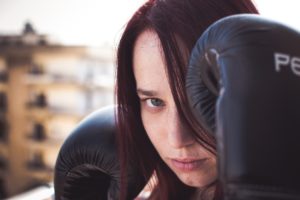
Photo by Jason Blackeye on Unsplash
Sometimes life is like a boxing match. I have good stamina, and I’m dogged as hell. I’m organized and efficient. I try to think clearly about my choices. I’m thoughtful. But every now and then life knocks me down. Hard.
Usually I cope with vigorous exercise, writing, getting a good night’s sleep, and processing with a friend. I get back on my feet and keep going.
But every few years the blows keep coming, hard and fast, unexpected hooks and jabs.
This has been one of those times. I’m nursing my third upper respiratory infection in four weeks. Not COVID, but one of the many other plagues circulating this fall. I’ve once again pulled out the essential oil, the powdered vitamin C, the elderberry and echinacea tea, the nasal spray, the cough and cold medicine. I don’t usually take medication of any kind, but on this third round I feel so bruised and battered I’m choosing to. I’m tired out.
In between this virus, which arrived Thursday night, and the last one, which departed Monday, we discovered our dirt-floored cellar was ankle deep in water due to several inches of recent rain which caused some flooding. It’s going to take more than a thousand dollars to fix it.
Then, yesterday (Can it only be yesterday? It feels like weeks.) I was informed about the illness and injury of a family member, one of those people I love most in the world who is unable to receive it and has amputated me from their life. Now, a long way away from me as I sit here in Maine with a Kleenex box, another family member (another of my dearly loved ones) is carrying the whole situation on their shoulders: the hospital, surgery, legalities, finances, paperwork. My presence would only exacerbate the situation and make everything worse. I know it. The family member managing the crisis knows it.
So here I sit, wretched, broke, sick, and I can do nothing – nothing. A lifetime of petrified love weighs like a stone in my chest. It has nowhere to go. It never has. It’s not useful. It’s not wanted. But I can’t stop feeling it. It’s part of me.
And I’m down for the count. I’m all the way down and nothing in me is ready to get back up. My eyes are swollen. I can’t stop crying. I don’t know where the cold begins and the grief ends. All this grief, a lifetime of grief. It feels endless, bottomless. I don’t think there are enough tears in the world to wash it away. I can do nothing but wait for news and try to be a long-distance support to the one who will accept my support. I can’t seem to get and stay well. I can’t fix the cellar. A plumber in hip boots with a new sump pump will do that early next week.
How can the truest, deepest love we feel be refused and rejected?
Rhetorical question. I don’t expect an answer. I’m sure I’m not the only one who has ever asked that question. Some things just can’t be understood. They’re not fair. They’re not explicable. They’re just life. I learned some time ago to cease arguing with what is.
And what is, right now, is grief. I can’t contain it, control it, avoid it, distract myself from it. I won’t share it, except in words. I’m simply letting it wash through me, surrendering to it. Maybe that’s what I need most today. Maybe the laundry, emptying the trash (all that soggy Kleenex), my usual weekend posting and publishing, raking leaves, dumping the compost, washing dishes, and all the rest of it doesn’t matter. Maybe I can’t get back on my feet until I’ve chosen to just stay down first.
How long do we have to cry to drain a lifetime of grief?
Don’t tell me. I don’t want to know.
This is not my usual kind of post, but it is a stay down, raw, naked one. It’s what I’ve got this week. It’s the best I’ve got.
On another note, I am expanding the site. I’m adding excerpts from my books to The Webbd Wheel page. Scroll down past the overview for the excerpts. If you’re intrigued, you can go to my Substack page and read for free as I serial publish my fiction. You’ll find extensive archives, so you can read from the beginning if you wish.
To read my fiction, serially published free every week, go here: 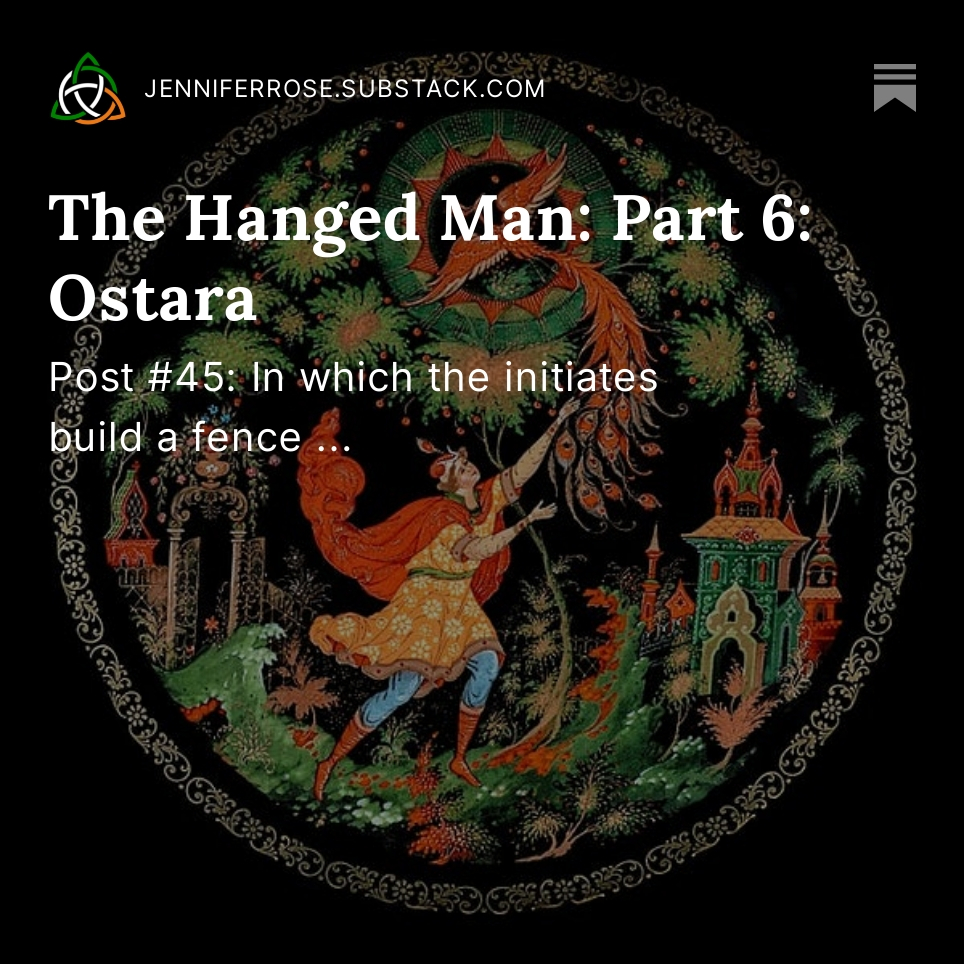
by Jenny Rose | Jun 11, 2022 | Power
Can you walk away? Will you choose to?
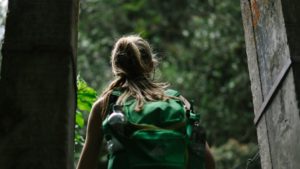
Photo by Dan Gold on Unsplash
This piece from Leo Babauta hit my Inbox recently, and I’ve been turning it over in my mind.
Before I go any further, I need a moment to sit here and shudder. Because walking away is hard. It’s devastating. It’s an atomic bomb.
At least it’s felt that way when I’ve done it in my personal life, probably because I’ve waited, dithering, denying, distracting, hanging on and trying harder, so long for things to change. For me to change. For the other person to change. For divine intervention. For some event or person to rescue me.
By the time I do walk away I’m utterly exhausted and used up, and I hate myself far more than those affected by my walking away, though they, of course, don’t understand that. The relief inherent in walking away, the freedom, the reclamation of personal power, have only made me hate myself more.
Babauta’s article doesn’t start with the interpersonal stuff, though. He comes at it from a minimalist perspective. Can you walk away from an unhappy job? From a new car? From a deal or negotiation? From a tempting but unethical situation in which you might gain? From a new gadget or toy you really want but don’t need and can’t afford? From being too busy, too noisy, too tired, too stimulated?
Can you walk away from what the neighbors think, or your family? Can you walk away from the belief you need any particular person in your life to be happy? Can you walk away from your hopes and the beautiful dream you know is never coming true? Can you walk away from a toxic situation you’re deeply invested in? Can you walk away from the things and/or people destroying you?

Photo by Ian Espinosa on Unsplash
If you can’t walk, can you crawl away? On your belly, clawing at the ground, sobbing, naked and alone, can you crawl away?
It’s more than that, though. Will you?
Most of us can walk away if we have to. Many of us have had to and have done it. But who hasn’t felt stuck, unable to walk away, no matter how dark and dirty our fantasies are of leaving it all behind?
(Come on, I know you’ve had that fantasy at some time or another. Get in the car and drive until … until you’ve reached the edge of the world, of your life. Until you’ve run out of money or gas. Until you hit the ocean. Until you can stop.
Or go out the front door and start walking without looking back. Disappear. Vanish like a drop of water in the desert. Become nameless, faceless, rootless, homeless.)
But sometimes we feel stuck. Forever. Or what might as well be forever, because in this moment we’re so tired, so drained, so empty, there’s no comfort in the thought that things will change someday. One day.
One day is too far ahead. We’re not sure how to get through this day. But we have to. And the day after that. And the day after that. We made promises. We have responsibilities, loyalties, duties to others. We’re the keystone, the essential piece, the glue holding it together. It depends on us. If we’re not there … what? What would happen? Would everybody die? Would their lives be ruined? Would the sky fall?
Would they stop loving us?
That’s the worst fear, isn’t it? They’ll stop loving us. We love them and we have to walk away and then they’ll stop loving us. How can anyone love us when we’ve walked away? How can we love ourselves? How can anyone ever understand?
Does love require we allow ourselves to be destroyed? Are we supposed to love others more than ourselves?
Or are we allowed to walk away if we must to save our own lives? But what if no one believes us?
(For God’s sake, stop whining! Stop making such a big deal out of everything! You’re so dramatic!)
The terrible, inescapable truth about walking away is if we can’t do it, we’ve given away part of our power. If we choose to do it and reclaim our power, the price can bankrupt us financially, mentally, and emotionally.
On the other hand, sometimes the simple act of walking away sets us free in extraordinary, joyful ways we can’t even imagine.
Sometimes (perhaps hardest of all) we face annihilating consequences and experience freedom.
Can I walk away?
Will I choose to?
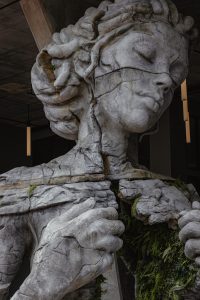
By Marianna Smiley on Unsplash

















